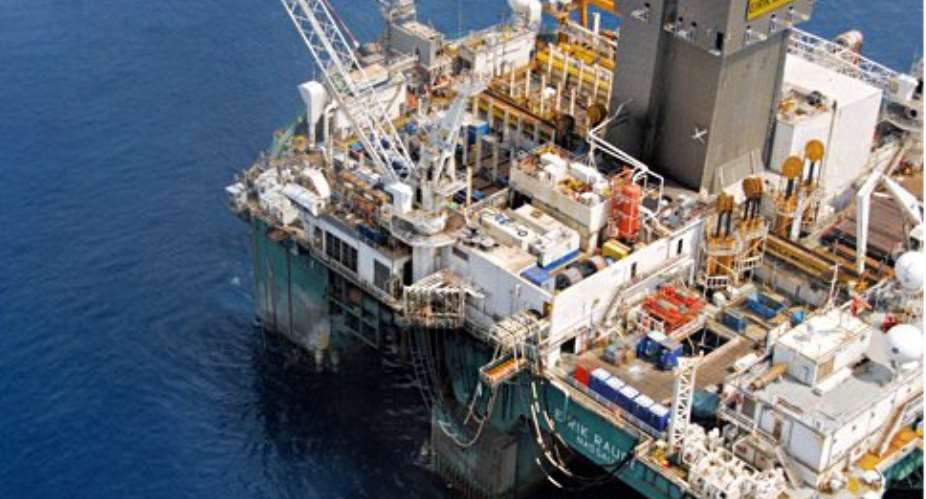Oil Watchers in the country have reiterated the need for the Petroleum Commission to revisit allegations of possible violations of the Local Content Regulation and stamp out the creeping menace.
Citing specific violations, they said Local Participation Regulation 4 of the Local Content Regulations, LI 2201, which provides a minimum equity of five per cent for indigenous Ghanaian firms in every Petroleum Agreement (PA), appears to be infringed upon.
According to them, the allegation that indigenous oil companies namely, Hills Oil Marketing Company and Royal Gate, whose equity of five per cent each in the Britania-U and UB Resources' PA's, have been translated into a shortfall of four per cent and four-point-three-five per cent, is worrying.
Prof. Kwaku Appiah-Adu, an oil and gas expert, who reiterated the call, said indigenous oil companies in the fledgling oil and gas industry in Ghana, deserves to hold the five per cent equity but the developments that some of their equities are being reduced is a threat to the local content regulation. He said this revelation does not augur well towards the success of the regulation which is in its infant stages in the country.
According to him, if the Local Content regulation would be successful, much depends on the seriousness of the Petroleum Commission in enforcing the legislation to the latter.
The African Centre for Energy Policy (ACEP) first raised the concern, alleging that the Hills Oil Marketing Company and Royal Gate, equity of five per cent each in the Britania-U and UB Resources' PA's has been translated into four per cent and four-point-three-five per cent.
To ACEP, it suspects fronting by some Ghanaian firms as they failed to submit documentations on their financial and guaranteed performance obligations, and therefore urged the government to disclose the beneficial owners of all companies both local and foreign.
Prof. Kwaku Appiah-Adu however urged the Petroleum Commission as the regulators of the upstream sector, to be proactive and ensure strict adherence of the regulation.
He said the regulation itself is one of the finest in the world, saying however that, the issue of monitoring and evaluation appears to be a challenge.
Mr. John K. Eshun, Chief Executive Officer of K4Co, an oil and gas consultancy firm based in Takoradi told The Enquirer that, the Local Content and local participation regulation is one of the best.
However, Mr. Eshun, said implementation challenges seem to be a barrier towards the success of the regulation.
“The oil companies are international companies operating in several countries. When they moved into Ghana and commenced operations, the companies providing supplies and support services to these international oil companies in the other countries followed them to Ghana and obtained service and supply contracts in Ghana with varying contract periods”, he said.
Mr. Eshun added that with the onset of the local content and local participation regulations, a major challenge to its implementation is the replacement of the international supply and support services organizations with that of Ghanaian owned ones.
“Tullow and kosmos, for example have a long-standing working relationship with organizations like schlumberger, Halliburton, Lloyds as major contactors to mention a few and these companies also have their own tall foreign chain of suppliers”, he said.
According to Mr. Eshun, some contract periods have not expired and may technically not be possible to replace such companies with Ghanaian companies. “For those that had expired or nearing expirations the owners have quickly included some Ghanaians to front them so as enable them secure new contracts”, he revealed, adding however that there is a thin line between fronting and partnership, and this seems to be another big challenge.
Meanwhile several visits by The Enquirer to the offices of the Petroleum Commission to respond to the claims proved futile.
According to the Ministry of Energy and Petroleum so far a total of over $584, 221,448.17 million worth of contracts has being awarded to indigenous companies between the year 2008 and the first quarter of 2014. The juiciest contract was the part building of the country's second oil vessel; Floating Production Storage and Offloading (FPSO) by Seaweld and Orsam, both local companies.
A report by the Ghana Institute of Governance and Security (GIGS), a policy think tank, says that so far foreign firms have bagged 80% of profits accrued from the oil field, leaving just a paltry 20% to Ghana.
“This investigation was carried out with support from the Media Foundation for West Africa and STAR-Ghana”





 Adu Boahen’s murder: Police arrest house help who was in possession of deceased’...
Adu Boahen’s murder: Police arrest house help who was in possession of deceased’...
 Akufo-Addo nominates Felicia Attipoe as Tema West MCE
Akufo-Addo nominates Felicia Attipoe as Tema West MCE
 Election 2024: I can't have someone I defeated twice as my successor – Akufo-Add...
Election 2024: I can't have someone I defeated twice as my successor – Akufo-Add...
 We’ll protect state wealth from opaque deals – Prof Jane Naana
We’ll protect state wealth from opaque deals – Prof Jane Naana
 Mauritania president says running for second term in June polls
Mauritania president says running for second term in June polls
 I won't ever say I was a mere driver’s mate' — Prof. Opoku-Agyemang
I won't ever say I was a mere driver’s mate' — Prof. Opoku-Agyemang
 2024 polls: 'EC struggling to defend credibility'— Prof. Opoku-Agyemang
2024 polls: 'EC struggling to defend credibility'— Prof. Opoku-Agyemang
 NPP will remain in gov’t till Jesus comes — Diana Asamoah
NPP will remain in gov’t till Jesus comes — Diana Asamoah
 Sunyani Technical University demands apology from former SRC president over sex-...
Sunyani Technical University demands apology from former SRC president over sex-...
 'Dumsor' was resolved by Mahama but ‘incompetent' Akufo-Addo has destroyed the g...
'Dumsor' was resolved by Mahama but ‘incompetent' Akufo-Addo has destroyed the g...
